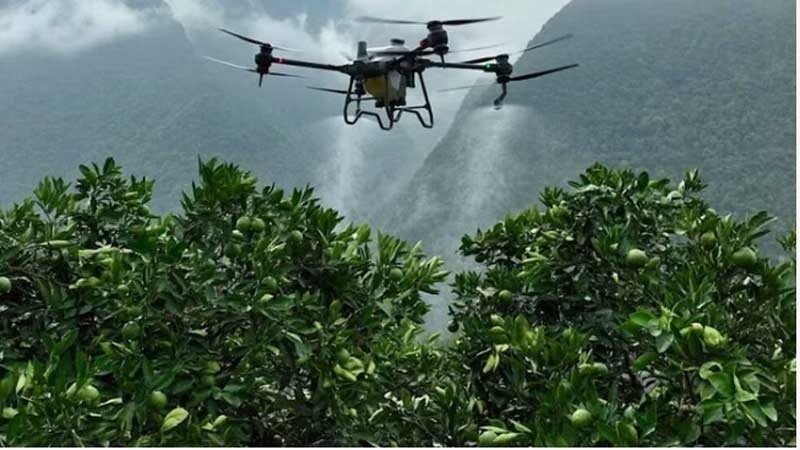Drone technology: A revolution in mango farming in India

New Delhi: Drone technology has been playing a vital role in the agricultural sector, bringing accuracy, competence, and sustainability to farming practices. Drones are being used in the spraying of chemicals on mango trees. Through drone technology, sprays of fungicides, insecticides, and water are being done in the right quantities. This technique efficiently controls pests and diseases with slight environmental damage. However, its popularity has been increasing, but what would be the correct dosage and water requirements are not clear.
Drones typically carry 5-20 liters per flight. Operates at 0.2-1 liter per minute. Maintained at 2-3 meters above the tree canopy and 4-6 meters/second, ensuring accurate coverage. Determines the area covered in one flight.
Also Read: Odisha takes strides to become a horticulture hub
The dosage of fungicides (e.g., carbendazim, propiconazole) or insecticides (e.g., imidacloprid, lambda-cyhalothrin) is adjusted based on manufacturer recommendations. For example, if 500 grams of chemical is required for 500 liters of water in traditional methods, the drone mixture is prepared by mixing 10 grams in 10 liters of water.
In fact, drone technology has been reducing water and chemical usage while it controls pests and diseases effectively in the mango orchards. However, a lot of research has been required on dosage and water. More and more farmers are ready to adopt this innovative technology; it is expected to revolutionize farming practices and increase yield without damaging the environment.


